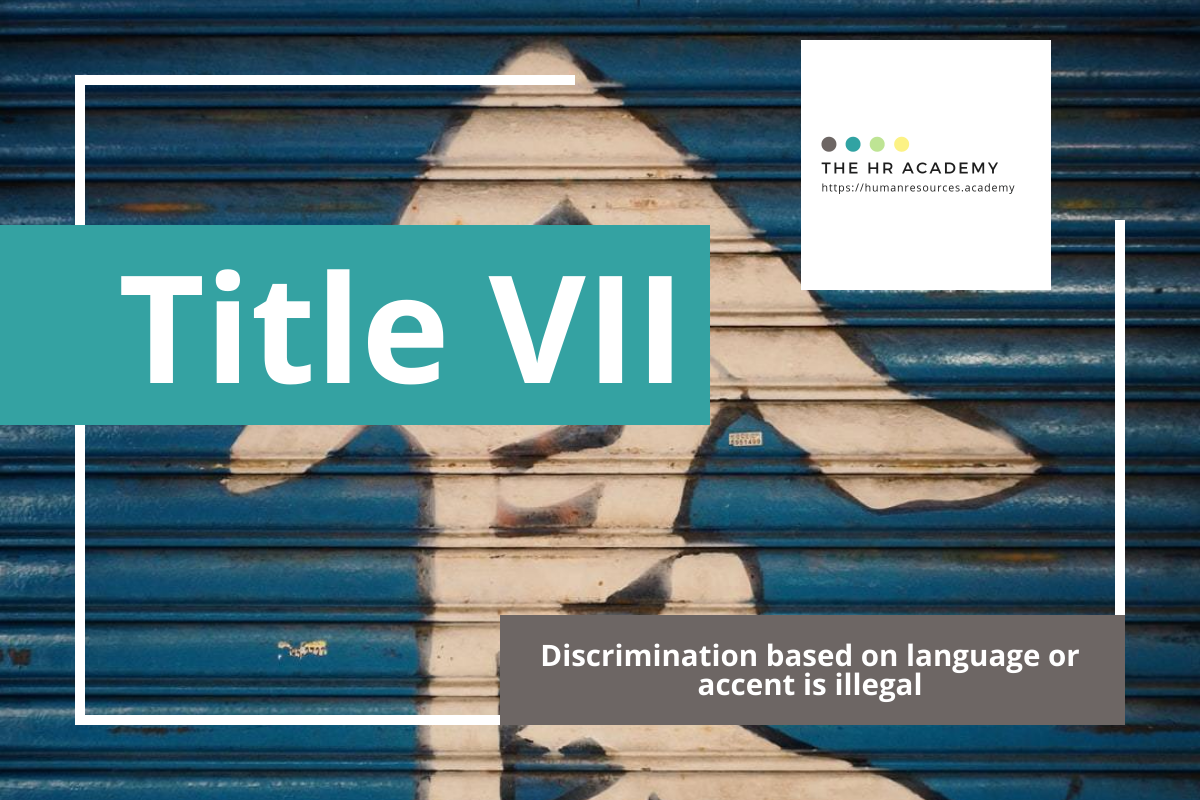Understanding Language and Accent Issues Under Title VII

Language-and-Accent-01
What Would You Do?
Q. How would you respond? You have received multiple complaints from customers, clients, or patients about an employee who speaks with a pronounced accent. The employee is a high-performing team member and has been recently promoted to a supervisory role. In addition to customer complaints, employees supervised by this employee have commented that he is difficult to understand and “speaks softly.”
Q. What would you do? In the situation above, your direct supervisor, the owner and CEO of the company, comes to you and instructs you to fire the employee with a pronounced accent because “he’s just too hard to understand, and he’s driving people away, affecting our bottom line.” The CEO tells you that the employee had better be gone tomorrow, “or else you’re going to have a lot bigger issues to deal with.”
Language-and-Accent-01-PPTThe Case
In Hoang Nguyen v. Unified Gov’t of Wyandotte Cty., the U.S. District Court for the District of Kansas ruled against an employer that had demoted a plant engineer of Vietnamese national origin, despite his positive performance evaluations in every area of his work. Nguyen was replaced by a less qualified individual, and his supervisor testified that Nguyen was “’hard to understand sometimes,’ ‘he tend[ed] to speak pretty softly,’ his ‘pronunciation … is a little bit deficient … given the time he’s been in [the U.S.]’, and ‘it’s very hard to understand him’ particularly in a big group meeting.” Id. at *4. The court found that Nguyen’s accent was a primary factor in his demotion, and noted that “Accent and national origin are generally inextricably intertwined.” Id. at *9.
Hoang Nguyen v. Unified Gov’t of Wyandotte Cty./Kansas City, Kansas, No. 16-2654-JAR, 2018 WL 587231, at *9 (D. Kan. Jan. 29, 2018).
Employment Best Practices
“An accent can reflect whether a person lived in a different country or grew up speaking a language other than English. National origin and accent are therefore intertwined, and employment decisions or harassment based on accent may violate Title VII. Due to the link between accent and national origin, courts take a “very searching look” at an employer’s reasons for using accent as a basis for an adverse employment decision. Courts require employers to provide evidence – as opposed to unsupported assertions – to explain such actions.
“Under Title VII, an employment decision may legitimately be based on an individual’s accent if the accent “interferes materially with job performance.” To meet this standard, an employer must provide evidence showing that: (1) effective spoken communication in English is required to perform job duties; and (2) the individual’s accent materially interferes with his or her ability to communicate in spoken English.
“Where the evidence shows that an individual has a good command of spoken English or satisfactorily performs his job when speaking accented English, courts have ruled against employers under Title VII.”
More available at EEOC.gov
The Bottom Line
Discrimination against someone because of their accent or language issues is illegal under Title VII of the Civil Rights Act of 1964, as amended. Language, accent, and national origin are all connected, and Title VII expressly prohibits discrimination based on national origin. Many courts have ruled similarly to the court in Hoang Nguyen, noting the relationship between national origin, language, and accent issues.
Disclaimer: Nothing in the HR Academy’s Expert Toolkits and online resources constitutes legal advice. Our informative resources provide Human Resources professionals with useful information related to federal employment law and recent court cases in a variety of jurisdictions. Always consult an attorney with employment law questions. Also note that not all cases in the Academy’s Expert Toolkits constitute mandatory authority in every jurisdiction. While Supreme Court cases are mandatory authority, circuit court decisions and U.S. District Court decisions relate to the specific jurisdiction in which the case was heard. The HR Academy does not provide legal advice, and our Expert Toolkits are provided solely as informational supplements for training and staff development.